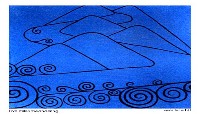Music
Creative
Home | Help | Contact Us | Useful Links | Terms of Use | MP3 Archive
IMAGES FROM KUBLA KHAN
'A vision in a dream, a fragment'
'Five miles meandering with a mazy motion
Through wood and dale the sacred river ran.'
Thus Samuel Taylor Coleridge described 'Kubla Khan'. This mysterious and magical work may never have seen the light of day but for the intervention of Lord Byron, whose request to Coleridge resulted in the poem's publication in June 1816. Coleridge had always seen it as "a psychological curiosity" and indeed it is, but such a profoundly pagan and ravishingly beautiful one that, like much of the poet's work, its lines still have the power to mesmerise the psyche of the English speaking world.
'Kubla Khan' is an opium dream, partially recalled. In Coleridge's own words:
"This fragment with a good deal more, not recoverable, composed, in a sort of Revery brought on by two grains of Opium taken to check a dysentry, at a Farm House between Porlock and Linton, a quarter of a mile from Culbone Church, in the fall of the year, 1797."
And again, this time the author speaking in the third person:
"An anodyne had been prescribed, from the effects of which he fell asleep in his chair at the moment he was reading the following sentence, or words of the same substance, in Purchas's Pilgrimage (a contemporary travel book much read by Coleridge). 'Here the Khan Kubla commanded a palace to be built, and a stately garden thereunto. And thus ten miles of fertile ground were inclosed with a wall.'"
For the sake of accuracy, the actual quotation from Purchas's Pilgrimage reads as follows: "In Xamdu did Cublai Can build a stately Palace, encompassing sixteene miles of plaine ground with a wall, wherein are fertile Meddowes, pleasant Springs, delightfull Streames, and all sorts of beasts of chase and game, and in the midst thereof a sumptuous house of pleasure, which may be removed from place to place. Here he doth abide. . . . ."
For three hours or so, his imagination fired not only by the words of Purchas, but by many other literary and travel book sources, Coleridge dreamed of two to three hundred lines of poetic images that "rose up before him as things" and when he awoke, he started to write them down. Incredibly, he was called out "by a person on business from Porlock" and on his return to his room Coleridge found he could remember little else of the dream vision.
The poem mixes images from Purchas's Pilgrimage with hints of ancient and archetypal rituals and concepts, all ordered in the kaleidoscopic manner of dreams. The River Nile (is it Alph, the sacred river?), the Empire of the Mongols, the temples of India, all combine in a sensuous vision of pagan pleasures and fertility rites - a perfect subject for expression through dance, music and the magical words of Samuel Taylor Coleridge. This then, is what he remembered.........
‘In Xanadu did Kubla Khan
A stately pleasure-dome decree:
Where Alph, the sacred river, ran
Through caverns measureless to man
Down to a sunless sea.
So twice five miles of fertile ground
With walls and towers were girdled round:
And there were gardens bright with sinuous rills,
Where blossomed many an incense-bearing tree;
And here were forests ancient as the hills,
Enfolding sunny spots of greenery.
But oh! That deep romantic chasm which slanted
Down the green hill athwart a cedarn cover!
A savage place! As holy and enchanted
As e’er beneath a waning moon was haunted
By woman wailing for her demon-lover!
And from this chasm with ceaseless turmoil seething,
As if this earth in fast thick pants were breathing,
A mighty fountain momently was forced:
Amid whose swift half-intermitted burst
Huge fragments vaulted like rebounding hail,
Or chaffy grain beneath the thresher’s flail:
And ‘mid these dancing rocks at once and ever
It flung up momently the sacred river.
Five miles meandering with a mazy motion
Through wood and dale the sacred river ran,
Then reached the caverns measureless to man,
And sank in tumult to a lifeless ocean:
And ‘mid this tumult Kubla heard from far
Ancestral voices prophesying war!
The shadow of the dome of pleasure
Floated mid way on the waves;
Where was heard the mingled measure
from the fountain and the caves.
It was a miracle of rare device,
A sunny pleasure-dome with caves of ice!
A damsel with a dulcimer
In a vision once I saw:
It was an Abyssinian maid,
And on her dulcimer she played,
Singing of Mount Abora.
Could I revive within me
Her symphony and song,
To such a deep delight ‘twould win me,
That with music loud and long,
I would build that dome in air,
That sunny dome! Those caves of ice!
And all who heard should see them there,
And all should cry, beware! Beware!
His flashing eyes, his floating hair!
Weave a circle round him thrice,
And close your eyes with holy dread,
For he on honey-dew hath fed,
And drunk the milk of Paradise.’
<<back
Home | Help | Contact Us | Useful Links | Terms of Use | MP3 Archive
Copyright ©2023 Richard Hill. Site design by Paul Hill.

